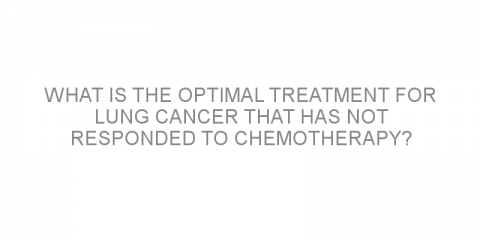In a nutshell This study examined the effect of hepatic-artery infusion combined with systemic chemotherapy on patients with inoperable colorectal liver metastases. Some background Any cancer involving the colon or rectum is called colorectal cancer. Frequently, this cancer spreads to the liver (colorectal liver metastasis), and often in...
Read MoreCurrent treatment status-Undergoing active treatment Posts on Medivizor
Non-metastatic prostate cancer: is having no treatment acceptable?
In a nutshell This study aimed to compare the standard of care and survival in patients diagnosed with non-metastatic prostate cancer. Some background Non-metastatic prostate cancer is cancer that has not yet spread beyond the prostate. There are several ways to treat this disease including radical prostatectomy (RP: surgical removal...
Read MoreHormone therapy: a risk factor for stroke and heart attacks in patients with prostate cancer
In a nutshell This study examined the link between androgen-deprivation therapy (ADT) and risk for developing heart attack or stroke in patients with prostate cancer. Some background Prostate cancer cells often require androgen hormones (male sex hormones such as testosterone) to grow. ADT is intended to reduce the production of...
Read MoreEscalating-dose radiotherapy for local prostate cancer
In a nutshell The authors evaluated the long-term results of escalating high dose radiotherapy for localized prostate cancer. Some background In the treatment of localized prostate cancer (cancer that has not spread beyond the prostate), improved radiotherapy techniques such as conformal radiotherapy allow high treatment doses to be...
Read MoreFDA approved drugs in the last 20 years for the treatment of Metastatic Breast Cancer
The article reviews drugs that were approved by the US Food and Drug Administration (FDA) for the treatment of Metastatic Breast Cancer (MBC) in the last 20 years. The authors summarize the clinical studies which lead to FDA approval. ‘First-line therapy’ is the initial treatment used to reduce cancer burden. It is usually the standard...
Read MoreWhat is the optimal treatment for lung cancer that has not responded to chemotherapy?
In a nutshell This analysis compared the safety and efficacy of epidermal growth factor receptor-tyrosine kinase inhibitors and chemotherapy as second-line treatments for lung cancer that has progressed despite first-line chemotherapy. Some background The first-line (primary) treatment for the majority of lung cancer patients is chemotherapy, but...
Read MoreDoes the chemotherapy dose schedule matter for early breast cancer treatment?
In a nutshell This study compared the safety and efficacy of three chemotherapy regimens in early breast cancer. Some background Adjuvant chemotherapy, delivered following surgical removal of the tumor, reduces mortality rates in breast cancer. Recent studies have shown that dose-density chemotherapy (which increases the intensity of the therapy...
Read MoreCan a cancer vaccine increase prostate-specific antigen doubling time?
In a nutshell This study evaluated the use of prostate-specific antigen doubling time as a marker of effectiveness of the personalized peptide vaccination for castration-resistant prostate cancer. Some background Cancer vaccine is one of the attractive treatment modalities for patients with castration-resistant prostate cancer (progression despite...
Read MoreCan lymphocyte to monocyte ratio predict outcome following surgery for stage III colon cancer?
In a nutshell This study evaluated the association between preoperative lymphocyte to monocyte ratio and time to recurrence and overall survival in colon cancer. Some background Surgery is the principle treatment option for advanced non-metastatic (has not spread to distant organs) colon cancer. 5-fluorouracil-based chemotherapy is the...
Read MoreProgression-free survival as a predictor of long-term prognosis
In a nutshell This study examined whether progression-free survival time could be used to predict long-term prognosis in non-resectable, locally advanced non-small cell lung cancer patients following chemotherapy and/or radiation therapy. Some background Non-small cell lung cancer is the most common form of lung cancer, and roughly 30% of tumors...
Read MoreImproving “chemo brain” through cognitive training
In a nutshell The current study examined the use of cognitive training in breast cancer survivors experiencing cognitive deficits following chemotherapy. Some background Patients treated with chemotherapy are at a high risk for cognitive deficits, particularly in executive functioning. Executive functions are those that lend control to our...
Read MoreTrametinib treatment and quality of life in advanced melanoma
In a nutshell This study compared quality of life among advanced melanoma patients receiving either trametinib (Mekinist) or chemotherapy. Some background Until recently, chemotherapy was the treatment of choice in the treatment of wide spread melanoma. Since the identification of commonly occurring genetic mutations in melanoma tumors, several...
Read More












